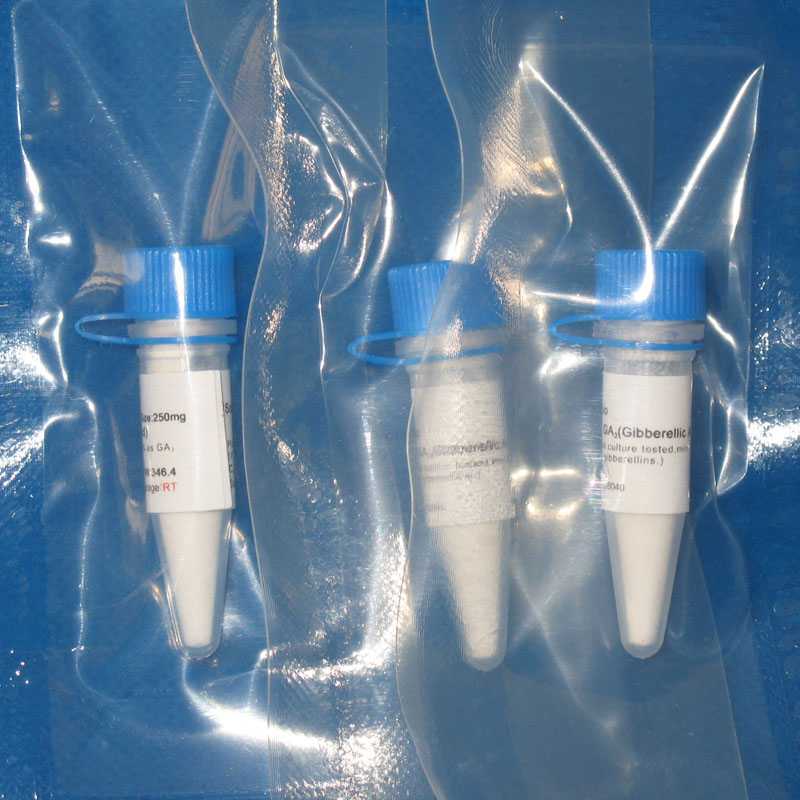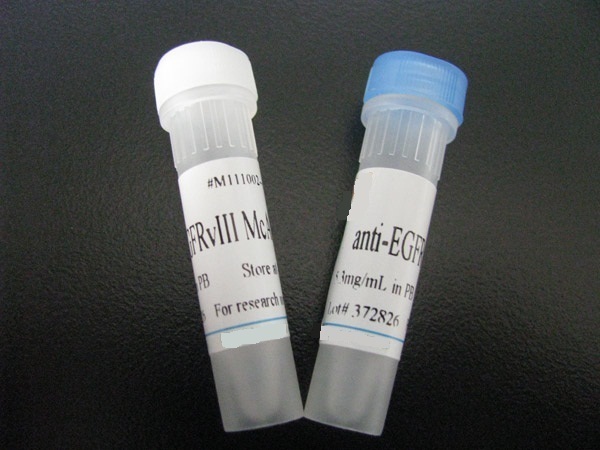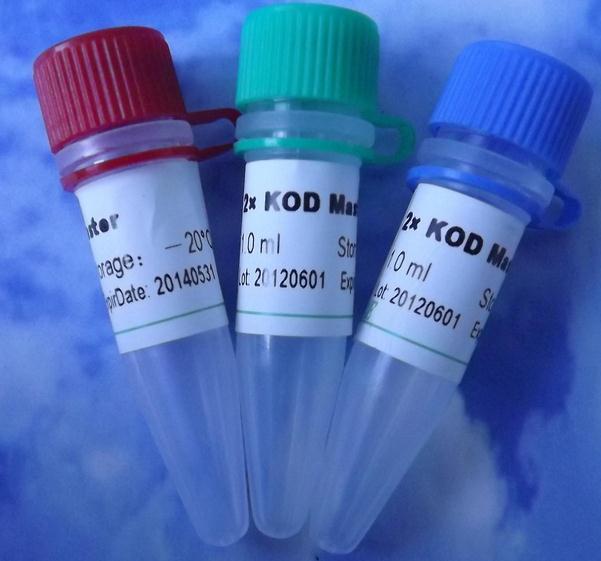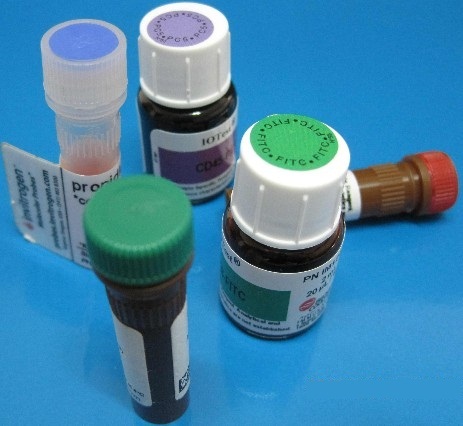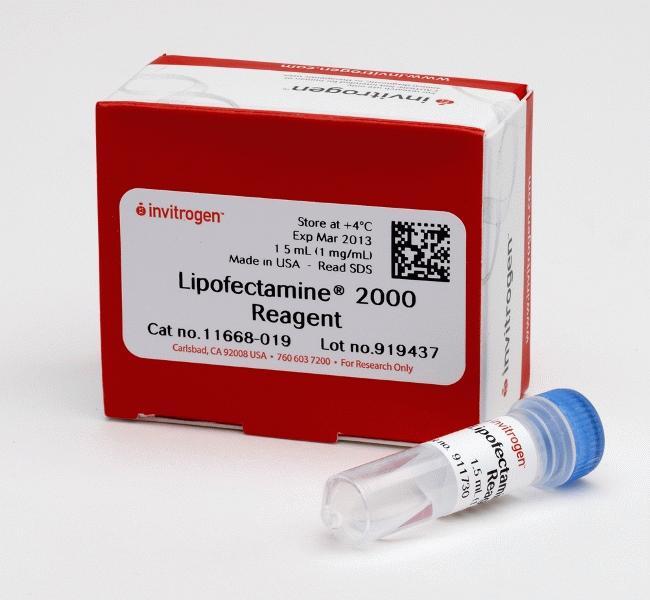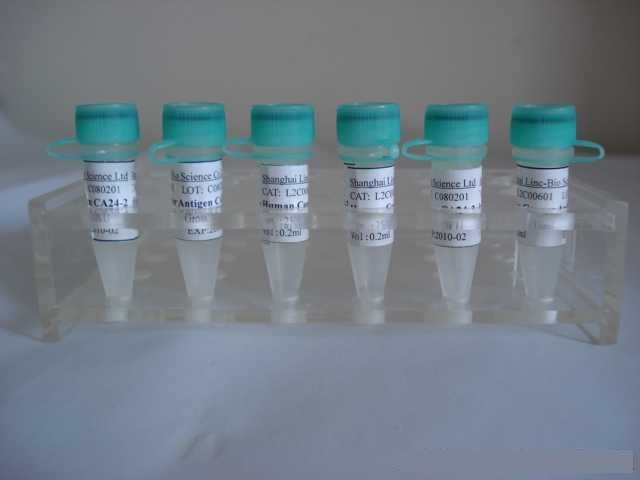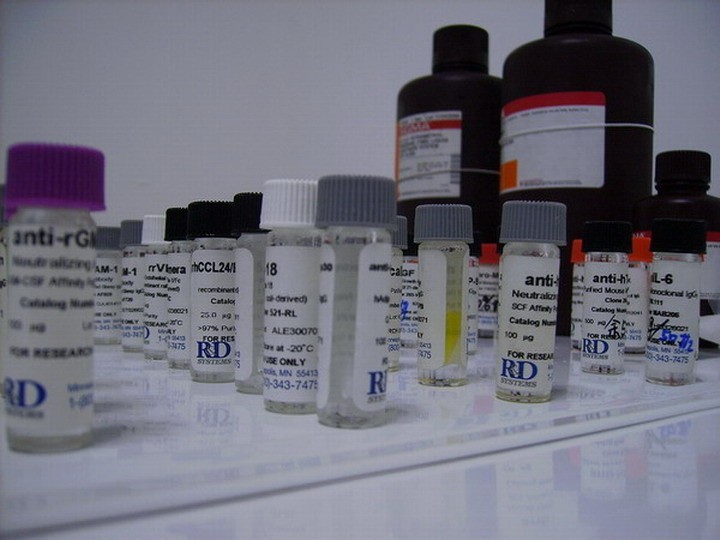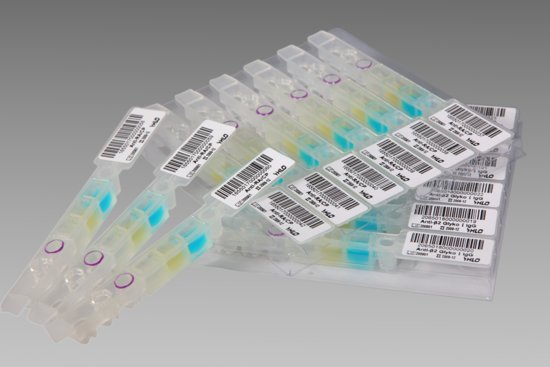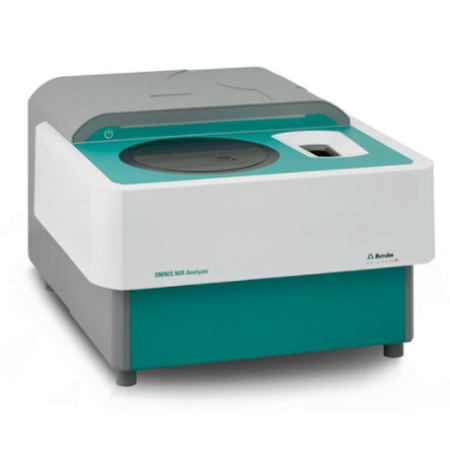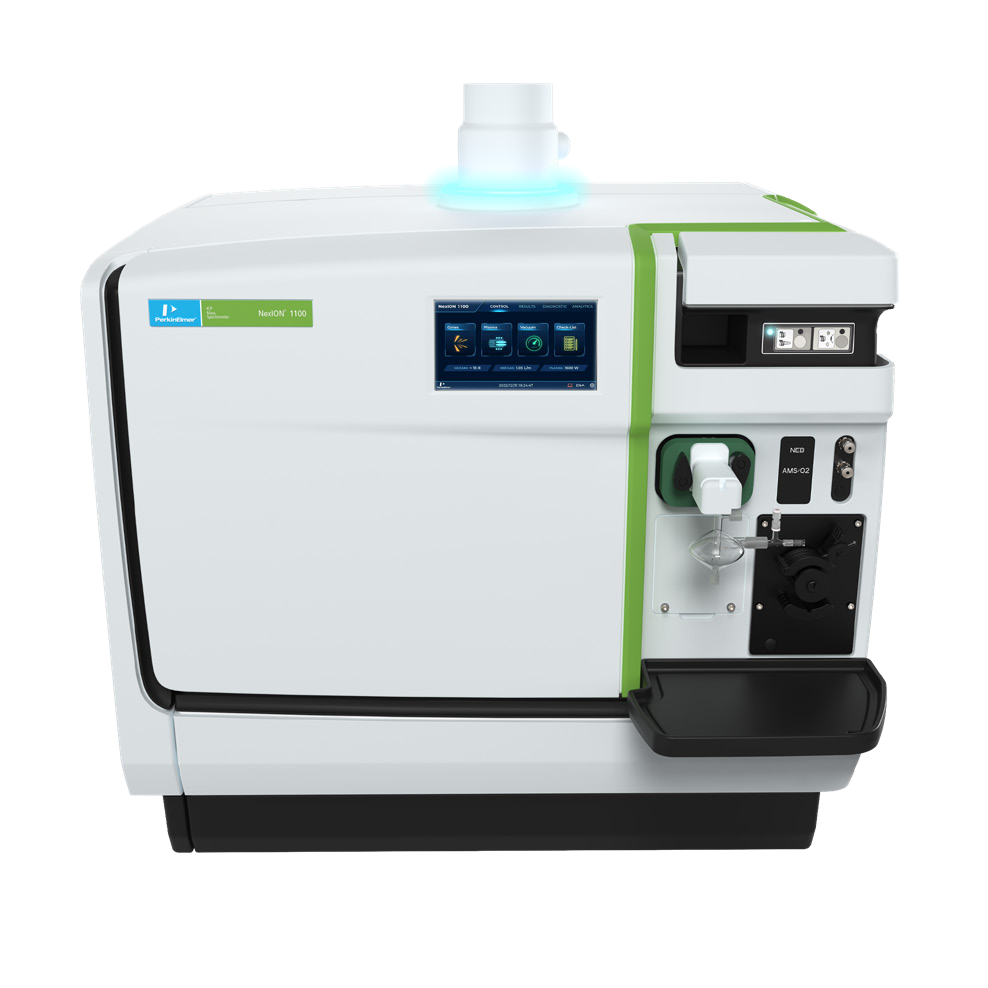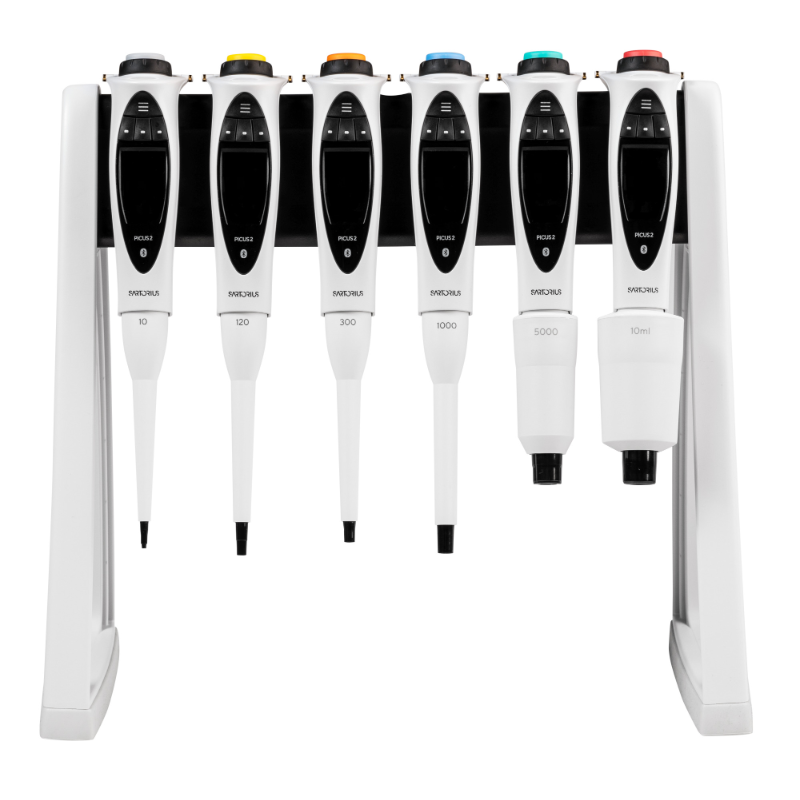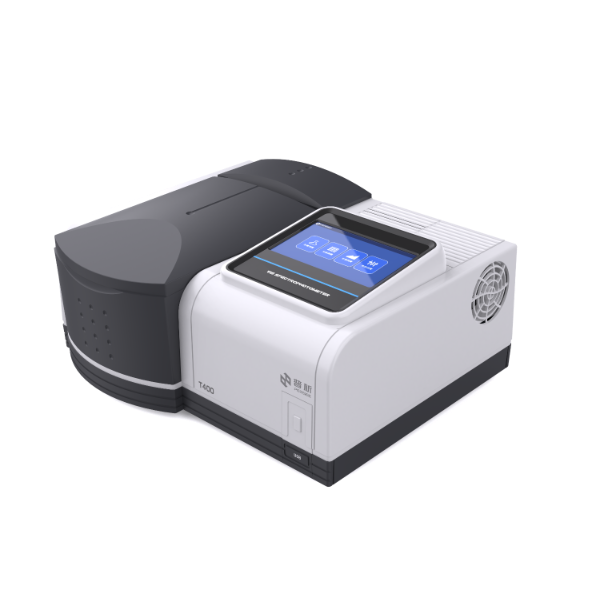抗体来源 Rabbit
克隆类型 polyclonal
交叉反应 Human, Mouse, Rat, Chicken, Dog, Cow, Horse, Rabbit, Sheep
产品类型 一抗
研究领域 细胞生物 神经生物学 信号转导
蛋白分子量 predicted molecular weight: 57kDa
性 状 Lyophilized or Liquid
免 疫 原 KLH conjugated synthetic peptide derived from human Biotinidase
亚 型 IgG
纯化方法 affinity purified by Protein A
储 存 液 Preservative: 15mM Sodium Azide, Constituents: 1% BSA, 0.01M PBS, pH 7.4
产品应用 ELISA=1:500-1000 IHC-P=1:100-500 IHC-F=1:100-500 ICC=1:100-500 IF=1:100-500
(石蜡切片需做抗原修复)
not yet tested in other applications.
optimal dilutions/concentrations should be determined by the end user.
保存条件 Store at -20 °C for one year. Avoid repeated freeze/thaw cycles. The lyophilized antibody is stable at room temperature for at least one month and for greater than a year when kept at -20°C. When reconstituted in sterile pH 7.4 0.01M PBS or diluent of antibody the antibody is stable for at least two weeks at 2-4 °C.
Important Note This product as supplied is intended for research use only, not for use in human, therapeutic or diagnostic applications.
生物素酶抗体产品介绍 Biotin, also known as vitamin B7, is an essential water-soluble vitamin that is a cofactor in glucogenesis and in the metabolism of fatty acids and leucine. Biotinidase is a 523 amino acid enzyme that catalyzes the hydrolysis of biocytin to biotin and lysine. Secreted into extracellular space, biotinidase is expressed in liver, heart, placenta, brain, skeletal muscle, pancreas and kidney. Biotinidase contains one carbon-nitrogen hydrolase domain, which is involved in the reduction of organic nitrogen compounds and ammonia production. Defects in the gene encoding biotinidase are the cause of biotinidase deficiency, which is characterized by skin rash, ataxia, seizures, hearing loss, hypotonia and optic atrophy. These symptoms are due to the individual’s inability to reutilize biotin and can, therefore, typically be treated with the addition of free biotin.
Function : Catalytic release of biotin from biocytin, the product of biotin-dependent carboxylases degradation.
Subcellular Location : Secreted
DISEASE : Defects in BTD are the cause of biotinidase deficiency (BTD deficiency) [MIM:253260]; also called late-onset multiple carboxylase deficiency. BTD deficiency is a juvenile form of multiple carboxylase deficiency, an autosomal recessive disorder of biotin metabolism, characterized by ketoacidosis, hyperammonemia, excretion of abnormal organic acid metabolites, and dermatitis.
BTD deficiency is characterized by seizures, hypotonia, skin rash, alopecia, ataxia, hearing loss, and optic atrophy. If untreated, symptoms usually become progressively worse, and coma and death may occur.
Similarity : Belongs to the CN hydrolase family. BTD/VNN subfamily.
Contains 1 CN hydrolase domain.
Database links : UniProtKB/Swiss-Prot: P43251.2
纯度:在实验的任何阶段,确定抗体溶液纯度的最简单方法是取一部分样本进行SDS-PAGE电泳。凝胶可用考马斯亮蓝染色(灵敏度为0.1—0.5ug/带)或银染(灵敏度1~l0ug/带)。
定量:如果抗体还不纯,有一个快捷的定量方法,即通过SDS-PAGE电泳分离出轻、重链,然后和已知的标准染色带比较。如果需要分析许多样本,用免疫测定法对抗体定量较容易。如果抗体是经过纯化的,可通过测蛋白总量代替上述两种方法,有一简单的方法,即紫外吸收法。生物素酶抗体的量可通过测280nm处的吸收值来测(10D大致相当于0.75mg/m1的纯化抗体)。
抗原结合活性:一般说来,纯化方法不会引起抗原结合活性的改变。用蛋白G或蛋白A树脂很少导致抗体活性丧失。然而,如果最终抗体产物的作用不如原来所预料的好,检测抗体纯化过程所丢失的活性就极为重要。用一系列滴定法比较纯化的抗体和其原材料的活性,以标定每一步中的总抗体量,这将有助于较好的估计通过纯化所丢失的活性。
![]()



